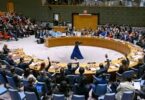King Salman bin Abdul Aziz has launched an unprecedented anti corruption drive in his kingdom to eradicate this menace which axes the foundation of a country. Saudi authorities have detained 11 princes, four sitting ministers and a dozen former ministers. The detainees include the richest and influential personality Prince Alwaleed bin Talal who also owns three big TV channels beside huge investments in global monetary organizations. Unlike the Ulema of Pakistan, the religious scholars in Saudi Arabia lent their unflinching support to the anti-graft efforts their state institutions. In a twitter message the Council of Senior Scholars said,” Fighting corruption is dictated by Islamic Shariah and should be done for national interest. It is no less than fighting terrorism”
The analogy drawn by the Saudi religious scholars between corruption and terrorism must be a future guideline for the leadership of our particular religious party who ridiculed Panama Papers revelations “Pajama Papers” and described the writ petition of Pakistan Tehrik -e-Insaf submitted to the Supreme Court a non-serious document. Likewise, when a state institution exposed the link between financial corruption and urban terrorism in Sindh province, the PPP leadership raised hue and cry about it. The Information Secretary of the party boasted, “Blame us for every thing but not for terror as Benazir Bhutto was the victim of terrorism” No doubt, she may have been killed by a terrorist while departing from a public meeting in Liaqat Bagh, but the media leaks confessional statements of a PPP activist Uzair Baluch earlier before the Joint Investigation Team and now before a Magistrate in Karachi establish a link between corruption and target killings.
It is an encouraging scenario that anti- corruption efforts are assuming a global dimension. The World Bank Program “Stolen Assets Recovery” provides the way forward. It is now for the ruling and opposition parties of Pakistan to see the writings on the wall and seriousness of the world community against corruption. They should strengthen the existing laws and institution rather than diluting them.






